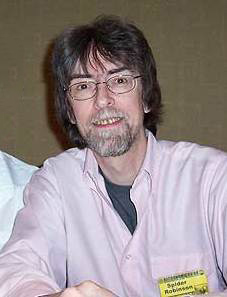Top 114 Refute Quotes & Sayings - Page 2
Explore popular Refute quotes.
Last updated on April 21, 2025.
For the sacrificed, in the hour of sacrifice, only one thing counts: faith-alone among enemies and skeptics. Faith, in spite of the humiliation which is both the necessary precondition and the consequence of faith, faith without any hope of compensation other than he can find in a faith which reality seems so thoroughly to refute.
I will prove that the world is wrong, by showing what God is...God himself was once as we are now and is an exalted man, and sits enthroned in yonder heavens! That is the great secret...I am going to tell you how God came to be God. We have imagined and supposed that God was God from all eternity. I will refute that idea, and take away the veil, so that you may see
Class of 2009: you are going to have to figure out what it means to be a human being on Earth at a time when every living system is declining, and the rate of decline is accelerating. Kind of a mind-boggling situation... but not one peer-reviewed paper published in the last thirty years can refute that statement.
[Confiscating a book and punishing its author] is a sign that one does not have a good case, or at least doesn't trust it enough to defend it with reasons and refute the objections. Some people even go so far as to consider prohibited or confiscated books to be the best ones of all, for the prohibition indicates that their authors wrote what they really thought rather than what they were supposed to think . . .
I can negate everything of that part of me that lives on vague nostalgias, except this desire for unity, this longing to solve, this need for clarity and cohesion. I can refute everything in this world surrounding me that offends or enraptures me, except this chaos, this sovereign chance and this divine equivalence which springs from anarchy. I don't know whether this world has meaning that transcends it. But I know that I do not know that meaning and that it is impossible for me just now to know it. What can a meaning outside my condition mean to me? I can understand only in human terms.
Catch-22 did not exist, he was positive of that, but it made no difference. What did matter was that everyone thought it existed, and that was much worse, for there was no object or text to ridicule or refute, to accuse, criticize, attack, amend, hate, revile, spit at, rip to shreds, trample upon or burn up.
On May 7, a few weeks after the accident at Three-Mile Island, I was in Washington. I was there to refute some of that propaganda that Ralph Nader, Jane Fonda and their kind are spewing to the news media in their attempt to frighten people away from nuclear power. I am 71 years old, and I was working 20 hours a day. The strain was too much. The next day, I suffered a heart attack. You might say that I was the only one whose health was affected by that reactor near Harrisburg. No, that would be wrong. It was not the reactor. It was Jane Fonda. Reactors are not dangerous.
Don't you understand anything? Isn't it absolutely essential to keep a fierce Left and a fierce Right, both on their toes and each terrified of the other? That's how we get things done. Any opposition to the N.I.C.E. is represented as a Left racket in the Right papers and a Right racket in the Left papers. If it's properly done, you get each side outbidding the other in support of us-to refute the enemy slanders. Of course we're non-political. The real power always is.
A work of art contains its verification in itself: artificial, strained concepts do not withstand the test of being turned into images; they fall to pieces, turn out to be sickly and pale, convince no one. Works which draw on truth and present it to us in live and concentrated form grip us, compellingly involve us, and no one ever, not even ages hence, will come forth to refute them.
It is easy to obtain confirmations, or verifications, for nearly every theory-if we look for confirmations. Confirmations should count only if they are the result of risky predictions... A theory which is not refutable by any conceivable event is non-scientific. Irrefutability is not a virtue of a theory (as people often think) but a vice. Every genuine test of a theory is an attempt to falsify it, or refute it.
Super Tuesday is the day on which most states hold their primaries. Its darker partner is Dirty Tricks Thursday: the Thursday before an election when candidates release scandalous stories to garner bad publicity for their opponent: the timing means the accused will have little time to refute the allegations.
I have a sustained interest in frippery. I can't refute the monster accusation, either. Some writers are awful on the page and kind in person. More often it's the other way around. I'd say I'm probably the same amount of asshole on the page as in life. I do try to be entertaining about it, however - in both places.
I think nobody alive today is a more powerful agent of conversion than someone like Mother Teresa. You can refute arguments but not her life. When she came to the National Prayer Breakfast and lectured President Clinton about abortion, he had nothing to say to her. He can't argue with a saint. It's too bad there isn't an easier way, because becoming a saint is not the easiest thing in the world. It's much easier to become an apologist or a philosopher or a theologian.
Many of my sharpest critics have decided to take a position of ignoring me - because they feel that by attacking me, they would draw attention to my book and give me more publicity and help me sell more books. So I think that they decided that the best thing for them to do is to say nothing. Also, I think that some of my critics simply can't refute my argument - and so it's easier for them to ignore it as well, so that they're not forced to confront the logical contradiction in their own position.
Sarah Palin was delivering a speech and she said 'refudiate.' It's not a word – you have refute and repudiate, and she combined them. A lot of times that will happen and people will confuse combinations of words. I remember a couple years ago John McCain mistakenly combined the words Vice President and Palin.
People often find it easier to refute a fake extreme opponent than a more cautious real one, so they knock down the straw man instead. It is actually worth the trouble to identify the invalid forms of argument, and to learn their names. Not only can you then avoid them yourself; you can also identify them in opponents. If you call your opponent's errors by their Latin names, you can make it look as though he or she is suffering from a rare tropical disease.
The idea of Socialism is at once grandiose and simple. . .We may say, in fact, that it is one of the most ambitious creations of the human spirit, . . .so magnificent, so daring, that it has rightly aroused the greatest admiration. If we wish to save the world from barbarism we have to refute Socialism, but we cannot thrust it carelessly aside.
Why should not the knowledge, the skill, the expertness, the assiduity, and the spirited hazards of trade and commerce, when crowned with success, be entitled to give those flattering distinctions by which mankind are so universally captivated? Such are the specious, but false arguments for a proposition which always will find numerous advocates, in a nation where men are every day starting up from obscurity to wealth. To refute them is needless. The general sense of mankind cries out, with irresistible force, "Un gentilhomme est toujours gentilhomme.
The indispensability argument seeks to assimilate the epistemology of metaphysical statements to the epistemology of statements that are obviously empirical. I think it fails to achieve this goal. The argument does not refute the Carnapian thesis that scientific theories and metaphysical claims differ epistemologically - observations can provide evidence for the former, but not for the latter.
...There are also those who inadvertently grant power to another man's words by continuously trying to spite him. If a man gets to the point where he can simply say, 'The sky is blue,' and people indignantly rush up trying to refute him saying, 'No, the sky is light blue,' then, whether they realize it or not, he has become an authority figure even to such adversaries.
Those who would assail the Book of Mormon should bear in mind that its veracity is no more dubious than the veracity of the Bible, say, or the Qur'an, or the sacred texts of most other religions. The latter texts simply enjoy the considerable advantage of having made their public debut in the shadowy recesses of the ancient past, and are thus much harder to refute.
Will posterity believe that, while the Press has swarmed with inflammatory productions that tend to prove the blessing of theoretical confusion and speculative licentiousness, not one writer of talent has been employed to refute and confound the fashionable doctrines, nor the least care taken to disseminate works of another complexion.
I'm an atheist. I suppose you can call me a sort of libertarian anarchist. I regard religion with fear and suspicion. It's not enough to say that I don't believe in God. I actually regard the system as distressing: I am offended by some of the things said in the Bible and the Qur'an and I refute them.
The significance of a fact is relative to [the general body of scientific] knowledge. To say that a fact is significant in science, is to say that it helps to establish or refute some general law; for science, though it starts from observation of the particular, is not concerned essentially with the particular, but with the general. A fact, in science, is not a mere fact, but an instance. In this the scientist differs from the artist, who, if he deigns to notice facts at all, is likely to notice them in all their particularity.
But having considered everything which has been said, one could by this believe that the earth and not the heavens is so moved, and there is no evidence to the contrary. Nevertheless, this seems prima facie as much, or more, against natural reason as are all or several articles of our faith. Thus, that which I have said by way of diversion (esbatement) in this manner can be valuable to refute and check those who would impugn our faith by argument.
It can be frustrating and even frightening to observe the success which sometimes comes to outlaws and rogues who seem to refute notions of universal justice. Every time we see a villain enjoying the fruits of dishonorable acts we find ourselves doubting the value of character and the validity of the virtues we have been taught. Thus, it takes character to believe in character, but that belief is always rewarded, often by material success, but always by the esteem it earns from those who matter.
When they can't win a debate (can they ever?), leftists deploy what the late novelist/philosopher Ayn Rand called the argument from intimidation. Instead of trying to refute the other side, they label their opponents' position evil, attribute sinister motives to its adherents, and charge that its proponents are encouraging violence.
It is certainly not the least charm of a theory that it is refutable; it is precisely thereby that it attracts the more subtle minds. It seems that the hundred-times-refuted theory of the "free will" owes its persistence to this charm alone; some one is always appearing who feels himself strong enough to refute it.
To have an inner life, to think, to juggle and leap, to become a tightrope walker in the world of ideas. To attack, to riposte, to refute, what a contest, what acclaim. To understand. The most generous word of all. Memory. To retain, a geyser of felicity. Intelligence. The agonizing poverty of my mind. Words and ideas flitting in and out like butterflies. My brain a dandelion seed blown in the wind.
I know that it is a hopeless undertaking to debate about fundamental value judgements. For instance, if someone approves, as a goal, the extirpation of the human race from the earth, one cannot refute such a viewpoint on rational grounds. But if there is agreement on certain goals and values, one can argue rationally about the means by which these objectives may be obtained.
The most fundamental challenge of the anthropocene concerns agency. For those who lived the Enlightenment dream (always a minority but an influential one), agency was taken for granted. There were existential threats to agency (e.g., determinism) but philosophy mobilized to refute these threats (e.g., by defending libertarianism) or to defuse them (e.g., by showing that they were compatible with agency).
Every life is its own excuse for being, and to deny or refute the untrue things that are said of you is an error in judgment. All wrong recoils upon the doer, and the person who makes wrong statements about others is themselves to be pitied, not the person they vilify. It is better to be lied about than to lie. At the last no one can harm us but ourselves.
I can at once refute the statement that the people of the West object to conservation of oil resources. They know that there is a limit to oil supplies and that the time will come when they and the Nation will need this oil much more than it is needed now. There are no half measures in conservation of oil.
And when we come to refute them, we shall show in its fitting place that this class of men [i.e., the gnostics] has been instigated by satan to a denial of that baptism which is regeneration to God, and thus to a denial of the whole faith [by denying all physical aspects of spirituality, including the incarnatian and bodily resurrection of Jesus].
Religious people know deep down that that is the most vulnerable area of their lives, and when others question it, they are liable to hit out and feel insulted. You know it is absolutely without proof, yet people still commit themselves totally to this belief. They cannot refute it because it is so central to their lives.
You could take up the line that some of the gnostics took up - a line which I often thought was a very plausible one - that as a matter of fact this world that we know was made by the devil at a moment when God was not looking. There is a good deal to be said for that, and I am not concerned to refute it.
By speaking of greater forces than we can possibly invoke, and by confronting us with greater spans of time than we can possibly envisage, mountains refute our excessive trust in the man-made. They pose profound questions about our durability and the importance of our schemes. They induce, I suppose, a modesty in us.



















































